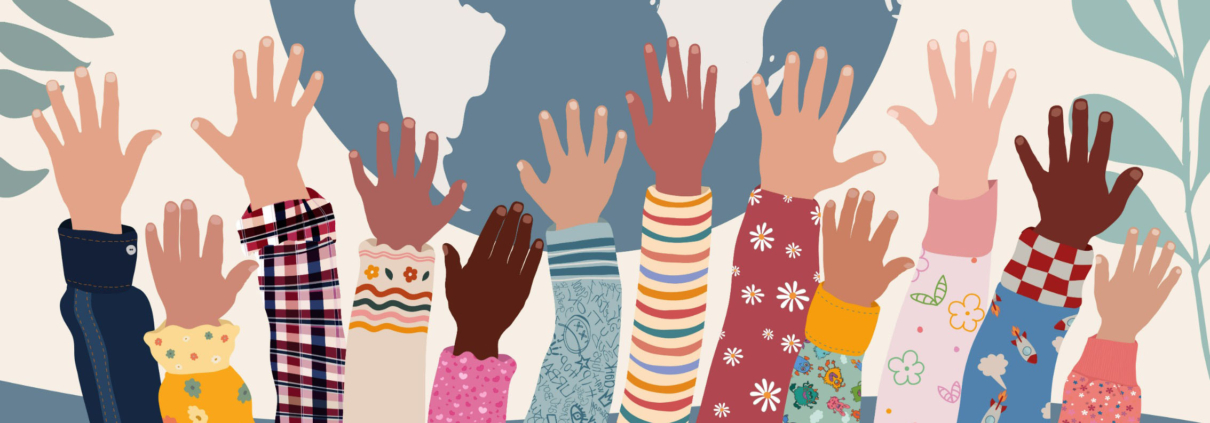The Power of Cultural Education: Shaping the Future Generation
The Power of Cultural Education: Shaping the Future Generation
Cultural education is essential for teaching children and young adults to appreciate diversity and value differences. It has the potential to shape the future generation by fostering a more tolerant and inclusive society. This blog will explore the importance of cultural education, provide strategies for implementing it, and discuss the challenges that come with teaching it.
Cultural education is defined as the process of learning about, understanding, and appreciating the culture of different groups, including cultures outside of one’s own. It is essential for teaching children and young adults to appreciate diversity and value cultural differences. By providing a foundation for mutual understanding and respect, cultural education can help to shape the future generation into a more tolerant and inclusive society. It can also help to create opportunities for individuals to explore their own identity and values. Those who take time to study cultural education can gain an appreciation for diverse perspectives.
Learn more with this article by UNESCO.
The Benefits of Cultural Education
Exploring the importance of cultural education is essential for building empathy, understanding, and respect among people of different backgrounds, while also equipping individuals with knowledge and skills to be successful in an increasingly globalized world. Developing cultural competency leads to more effective communication with people from different backgrounds, and also increases our ability to navigate unfamiliar situations. This can help to build relationships, foster collaboration, and create a more unified society.
Strategies for Implementing Cultural Education
Curriculum-based activities and resources are an effective way to teach children about different cultures. Examples include exploring traditional holidays, researching historical figures from diverse backgrounds, and engaging in multicultural literature or art projects. When teaching cultural education, it is important to create a safe environment where students feel comfortable expressing their opinions and experiences. It is also important to include multiple perspectives, avoid stereotypes, and use respectful language when discussing sensitive topics.
There are numerous successful programs that have been developed to promote cultural education in schools. For example, The National Coalition for Core Arts Standards provides guidelines for incorporating multicultural arts into curriculum. Another example is the International Baccalaureate Program which offers a framework for teaching global awareness.
Challenges of Cultural Education
Cultural biases can be deeply ingrained in individuals from a young age. It is important to recognize these biases and work to address them through teaching open-mindedness and tolerance. Cultural misunderstandings can arise due to differences in language or customs. It is important to address these misunderstandings in a respectful manner that encourages dialogue and understanding between those involved. When addressing cultural differences, it is important to be mindful of power dynamics. Be aware that some cultures may have been oppressed or marginalized due to their differences. It is essential to focus on celebrating diversity rather than reinforcing stereotypes or inequality.
Cultural education is essential for fostering a more tolerant and inclusive society by providing an understanding of different cultures and perspectives. It has the potential to shape the future generation by creating opportunities for individuals to explore their own identity and values. It has the potential to shape the future generation into a more unified society. Let’s achieve this by building empathy, understanding, and respect among people of different backgrounds. It is an essential tool for creating a world where everyone feels valued and included.
Parents and educators, teachers, early childhood educators can play an important role in promoting cultural education in their classrooms or homes. This can be done by providing students with resources that help them learn about different cultures. By creating a safe environment where students feel comfortable expressing their opinions and experiences, educators can help equip students with the knowledge and skills necessary for success in an increasingly interconnected world.
Let’s work together to create a brighter future for our children!
Click here to see our blog post about fun craft projects that help children explore different cultures. As always, we encourage creativity, teamwork, and critical thinking.

Founder and Director of Education at Language Kids.
M. Ed.



Leave a Reply
Want to join the discussion?Feel free to contribute!